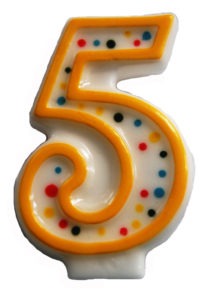 Welcome to the first installment of our weekly blog series about what you can expect from young music students! Every Monday, I’ll be writing about a different age group, their developmental characteristics and how they relate to a child’s abilities in learning an instrument. As I emphasized in my introduction to the series last week, it is very important to remember that every child is unique and that these are general guidelines for each developmental stage.
Welcome to the first installment of our weekly blog series about what you can expect from young music students! Every Monday, I’ll be writing about a different age group, their developmental characteristics and how they relate to a child’s abilities in learning an instrument. As I emphasized in my introduction to the series last week, it is very important to remember that every child is unique and that these are general guidelines for each developmental stage.
When parents ask us when their children should start lessons, we typically recommend starting lessons around the age of 5. This is because, around the age of 5, children reach certain developmental milestones that are important for beginning to master skills like playing an instrument.
Why 5 year-olds are ready to learn an instrument:
– Increased interest in pleasing others (both peers and adults). This means that a 5 year-old will want to make their music teacher happy, and will be very motivated by the praise and encouragement they receive from their teacher and from their family to continue learning and improving.
– Improved ability to hear and identify characteristics of music, such as differences in pitch, tempo, instrumentation, dynamics and more! They are also beginning to flex their creative musical muscle; they might sing made-up songs, invent new words for songs they already know, or begin improvising music on their new instrument, even though these attempts may not seem especially organized or meaningful yet. They are also able to understand the meaning attached to different types of music: for example, they might recognize music of different cultures, genres or be able to tie music to aspects of their daily routine.
– Desire and appreciation for the structure of following the rules and doing the right thing (morally or just in terms of what’s expected of them), especially as they start school and begin encountering more unknown people, places and ideas. At this stage, they can begin to understand and absorb the “rules” of music, and wanting to play music correctly. This can also translate into a desire to do the right thing and follow the rules by practicing (though they likely need assistance in following through on this desire).
– Development of the fine motor skills needed to begin learning finger independence and other important musical skills.
– The ability to see the big picture and think abstractly in new ways that may motivate them to learn an instrument. They are beginning to compare themselves to their peers, and think about doing what they see other children doing, so if they have a friend at school who is learning to play an instrument, they may wonder if they can do the same thing. They are also more able to think about the future and imagine themselves doing something over a long period of time and getting better at it. They can begin to understand if/then ideas such as “If I practice a lot, then I will get better at my instrument.”
What Your 5 year-old may NOT be ready to do:
– Practice on their own without reminders. While a child of this age may understand the importance of practice and may want to please their parents and teachers by practicing, and they are beginning to show much greater independence in their behavior, they typically have not yet developed the ability to follow through on consistent practicing on their own. It is likely that they will practice when reminded to do so, however, so help them build the habit now. Try adding practice to your child’s daily chore chart, if you use one. If you don’t, try simply incorporating practice time into the child’s daily routine, for example as the first step before their usual bedtime routine begins at the end of the day.
– Practice for extended periods of time. At this age, it is less important for a child to practice for long stretches of time at each sitting than it is for them to simply get in the habit of regular practice. Offer your child praise for engaging with their instrument between lessons, whenever they do it, and don’t pressure them to practice for a certain number of minutes.
We hope this helps you set realistic expectations for your young beginner! Please feel free to share your comments or questions with us below, and we look forward to seeing you here next week for the next installment in the series, looking at the next developmental stage and how a child’s limitations and abilities grow and change.
Sara R. Longwell, M.M.Ed, MT-BC
Community Relations Manager & Music Therapy Specialist

3 thoughts on “Monday Blog Series: What to Expect From Your Young Student- Age 5”
Comments are closed.